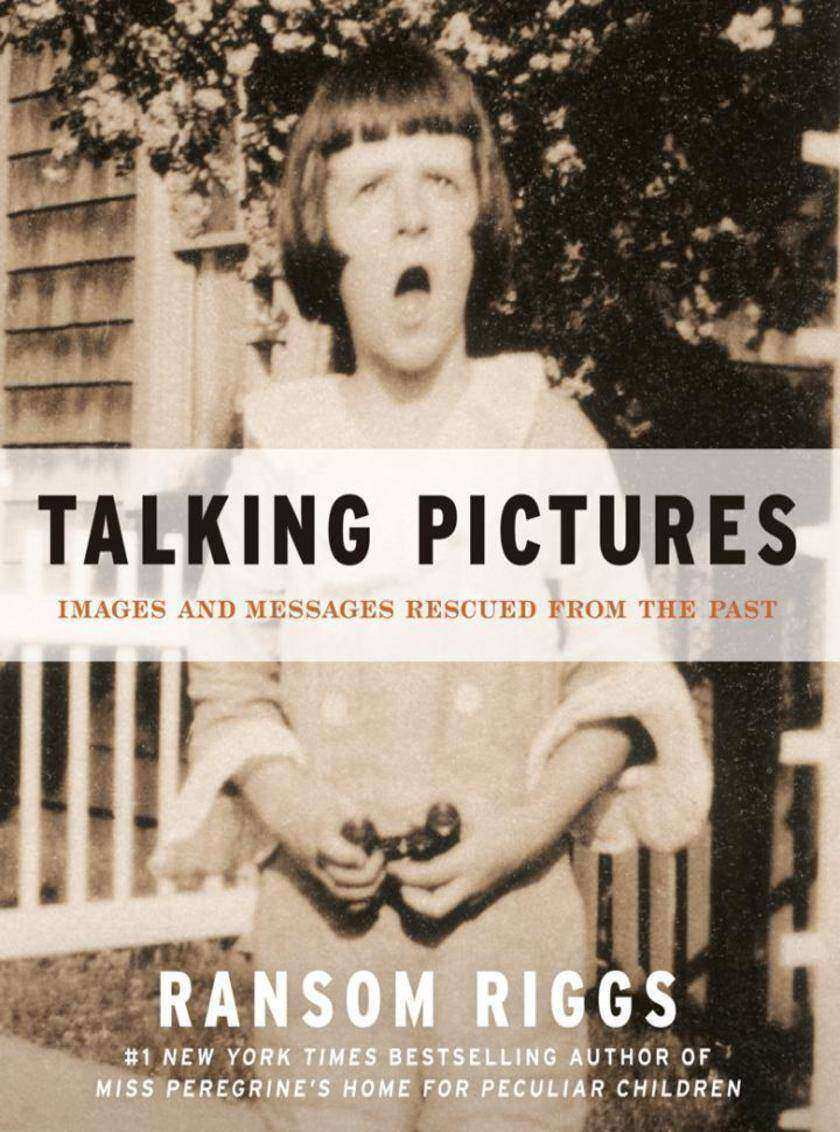
Talking Pictures
¥106.31
With the candid quirkiness of Awkward Family Photos and the confessional intimacy of PostSecret, Ransom Riggs's Talking Pictures is a haunting collection of antique found photographs with evocative in*ions that bring these lost personal moments to life from the author of the New York Times bestselling illustrated novel Miss Peregrine's Home for Peculiar Children. Each image in Talking Pictures reveals a singular, frozen moment in a person's life, be it joyful, quiet, or steeped in sorrow. Yet the book's unique depth comes from the writing accompanying each photo: as with the caption revealing how one seemingly random snapshot of a dancing couple captured the first dance of their 40-year marriage, each successive in*ion shines like a flashbulb illuminating a photograph's particular context and lighting up our connection to the past.

Nicholas Ray
¥106.31
Nicholas Ray spent the glory years of his career creating films that were dark, emotionally charged, and haunted by social misfits and bruised young people from his career-defining debut, They Live by Night, to his enduring masterwork, Rebel Without a Cause, with James Dean; from the noir thriller In a Lonely Place, pairing his wife Gloria Grahame with Humphrey Bogart, to the cult classic Johnny Guitar, a campy showcase for the tempestuous Joan Crawford. Yet his work on-screen is more than matched by the passions and struggles of his personal story one of the most dramatic lives of any major Hollywood filmmaker.In Nicholas Ray: The Glorious Failure of an American Director, Patrick McGilligan offers a revelatory biography of Ray, a self-destructive man whose troubled life was marked by creative peaks and valleys alike. From carousing with musicians such as Lead Belly and Woody Guthrie to romancing starlets such as Marilyn Monroe, Shelley Winters, and a teenage Natalie Wood, Ray's story is irresistibly alluring. Meticulous and compulsively readable, this is an extraordinary life of one of the most fascinating figures in American film.

The Great and Secret Show
¥106.31
In the little town of Palomo Grove, two great armies are amassing; forces shaped from the hearts and souls of America. In this New York Times bestseller, Barker unveils one of the most ambitious imaginative landscapes in modern fiction, creating a new vocabulary for the age-old battle between good and evil. Carrying its readers from the first stirring of consciousness to a vision of the end of the world, The Great and Secret Show is a breathtaking journey in the company of a master storyteller.

Black Boy
¥106.31
Richard Wright grew up in the woods of Mississippi, with poverty, hunger, fear, and hatred. He lied, stole, and raged at those around him; at six he was a "drunkard," hanging about taverns. Surly, brutal, cold, suspicious, and self-pitying, he was surrounded on one side by whites who were either indifferent to him, pitying, or cruel, and on the other by blacks who resented anyone trying to rise above the common lot. Black Boy is Richard Wright's powerful account of his journey from innocence to experience in the Jim Crow South. It is at once an unashamed confession and a profound indictment—a poignant and disturbing record of social injustice and human suffering.

Bel Canto
¥106.31
Somewhere in South America, at the home of the country's vice president, a lavish birthday party is being held in honor of Mr. Hosokawa, a powerful Japanese businessman. Roxanne Coss, opera's most revered soprano, has mesmerized the international guests with her singing. It is a perfect evening until a band of gun-wielding terrorists breaks in through the air-conditioning vents and takes the entire party hostage. But what begins as a panicked, life-threatening scenario slowly evolves into something quite different, as terrorists and hostages forge unexpected bonds and people from different countries and continents become compatriots.Without the demands of the world to shape their days, life on the inside becomes more beautiful than anything they had known before. At once riveting and impassioned, the narrative becomes a moving exploration of how people communicate when music is the only common language. Friendship, compassion, and the chance for great love lead the characters to forget the real danger that has been set in motion and cannot be stopped.Ann Patchett has written a novel that is as lyrical and profound as it is unforgettable. Bel Canto engenders in the reader the very passion for art and the language of music that its characters discover. As a reader, you find yourself fervently wanting this captivity to continue forever, even though you know that real life waits on the other side of the garden wall. A virtuoso performance by one of our best and most important writers, Bel Canto is a novel to be cherished.

Hideous Love
¥106.31
From Stephanie Hemphill, author of the Printz Honor winner Your Own, Sylvia and the acclaimed novel Wicked Girls: A Novel of the Salem Witch Trials, comes the fascinating story of gothic novelist Mary Shelley, most famous for the classic Frankenstein.An all-consuming love affair with famed poet Percy Bysshe Shelley, a family torn apart by scandal, a young author on the brink of greatness: Hideous Love is the story of the mastermind behind one of the most iconic figures in all of literature, a monster constructed out of dead bodies and brought to life by the tragic Dr. Frankenstein.This luminous verse novel reveals how Mary Shelley became one of the most celebrated authors in history.
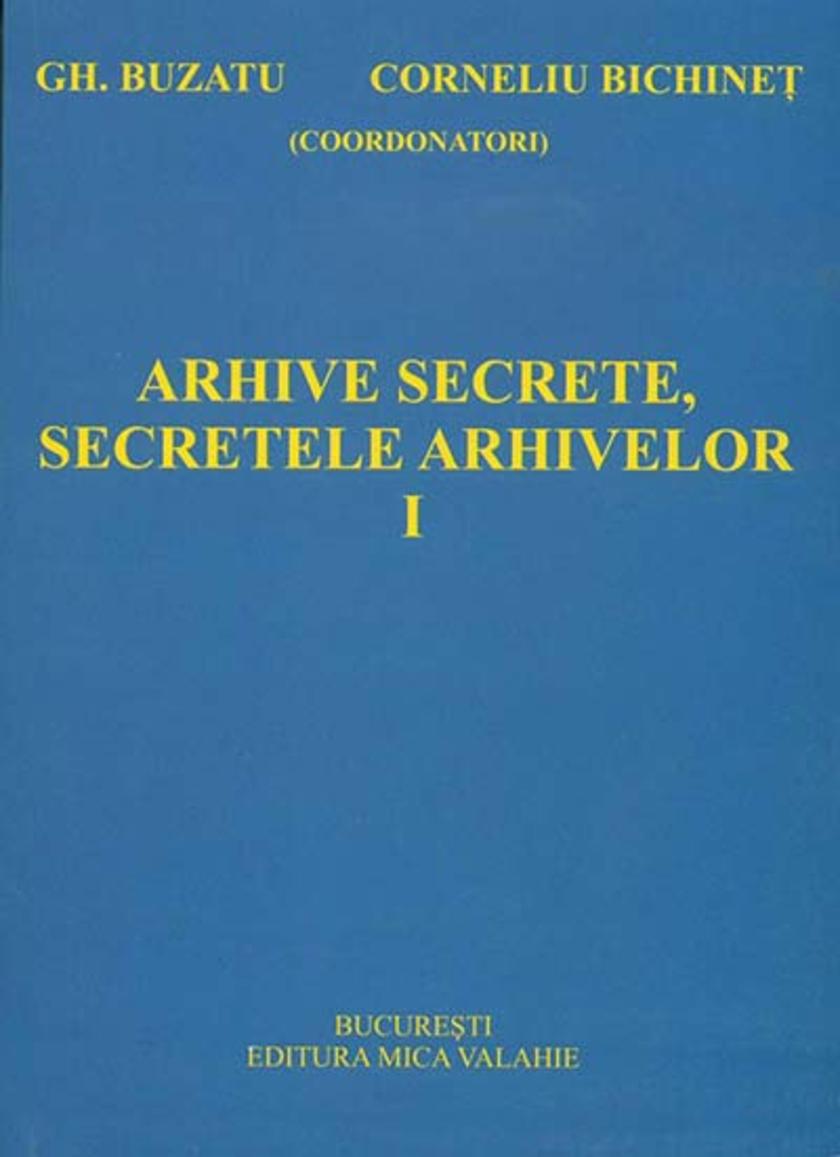
Arhive secrete, secretele arhivelor vol I
¥106.19
C??tig?tor al Michael L. Printz Honor Award"Cel mai bun roman pentru adolescen?i al anului 2015" - Boston Globe"Cea mai bun? carte a anului 2015" - Kirkus Reviews"Hubbard surprinde perfect toat? fr?m?ntarea primei iubiri, bucuria prieteniei ?i rela?ia complicat? dintre adolescen?i ?i adul?i." – VOYAPaul Wagoner, elev ?n ultimul an de liceu, intr? ?n ?coal? cu o arm? furat?, ??i amenin?? iubita, pe Emily Beam, apoi ??i ia via?a.Emily, furioas? ?i cople?it? de vin?, este trimis? la ?coala cu internat Amherst, unde dou? colege ciudate ?i spiritul lui Emily Dickinson ?i sar ?n ajutor.Dar Emily trebuie s? g?seasc? ?n ea ?ns??i for?a de a-?i vindeca sufletul r?nit, de a afla binele din spatele r?ului, speran?a din spatele disper?rii ?i promisiunea prim?verii, odat? cu ultima z?pad?."Gra?ioas? ca o pan? dus? de v?nt, aceast? poveste plin? de lirism vorbe?te despre experien?a vindec?rii ?n urma unei tragedii." - Kirkus Reviews"Z?pada mieilor e o mic? bijuterie. Aduce ?n scen? un personaj feminin puternic, care se str?duie?te din r?sputeri s? treac? peste un eveniment dureros din via?a ei." - School LibraryJournal"Stilul lui Hubbard e elegant ?i emo?ionant." - Publisher’s Weekly"Romanul acesta ?mbin? proza ?i poezia ?ntr-un mod aparte, iar efectul este uluitor." - Booklist
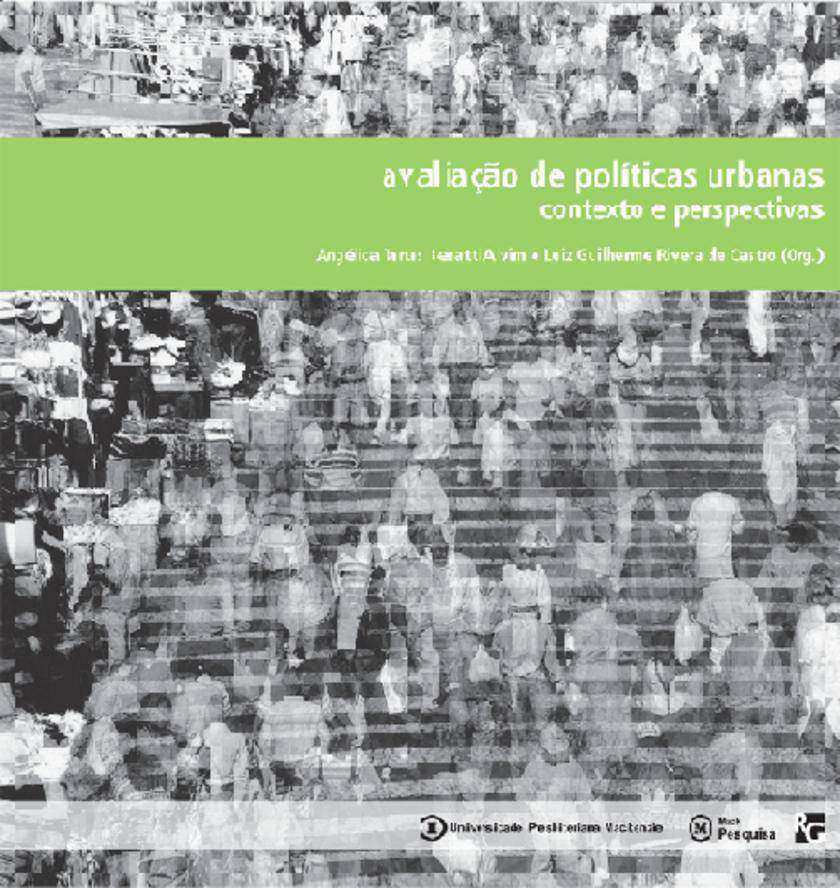
Avalia??o de políticas urbanas: contexto e perspectivas
¥106.19
Iustopia este o insul?-stat ?n care forma de guvern?m?nt este iusocra?ia, bazat? pe suprema?ia Legii. De aceea, pre?edintele Cur?ii Supreme de Justi?ie este ?i pre?edintele Iustopiei. C?nd Lidia Staicu, cea care ocup? aceste dou? func?ii este ?antajat?, Robi Ciobanu (avocat ?n Societatea de avocatur? ?Ciobanii ?n Rob? ?i Asocia?ii“, dar ?i redactor ?ef al e-tabloidului de scandal juridic ?L’oierii“) ?mpreun? cu echipa lui sunt angaja?i s? o apere pe presupusa ?antajist?. De aici ?ncep adev?ratele problemele ale lui Robi ?i ale echipei sale. Vor renun?a la cauz? c?nd vor fi pu?i ?n situa?ia s? aleag? ?ntre L’oierii ?i client?? Vor crede ?n varianta clientei? Care va fi solu?ia final? dat? de Ma?in?ria Justi?iei Iustopiene?

Endgame. Jocul Final: Cheia Cerului
¥106.19
Una dintre cele mai intense poveti de dragoste despre adolesceni pe care le-am citit vreodat.“ – David Levithan De cnd se tie, elul lui Wren Gray a fost s-i mulumeasc prinii. Lucru care nu a deranjat-o, dimpotriv. Acum ns a mplinit 18 ani i simte nevoia s-i mplineasc propriile dorine... doar c nu prea tie care sunt. n schimb, Charlie Parker tie exact care e dorina sa cea mai mare. Charlie e un biat blnd cu un trecut dureros – i a iubit-o pe Wren de cnd a vzut-o prima dat. Dar o fat ca Wren nu s-ar ndrgosti niciodat de un tip ca el. i totui... unele lucruri sunt scrise n stele. Romantic, senzual i att de adevrat – o poveste de neuitat despre prima iubire de la una dintre cele mai bune autoare de adult fiction ale momentului. O poveste de dragoste n acelai timp delicat i plin de pasiune.“ – Kirkus Reviews Relaia dintre personajele lui Lauren Myracle e bazat pe dragoste, respect i ncredere.“ – Publishers Weekly Lauren Myracle mbin tandreea cu erotismul.“ – School Library Journal Miercuri, Charlie trecuse prin ultima zi de coal ca i cnd s-ar fi aflat ntr-o negur. Toi ceilali erau entuziasmai la gndul c vara ncepea n mod oficial, ns Charlie nu-i dorea s vin vacana. El i-o dorea pe Wren. ns, dac nu avea de gnd s prind curaj i s acioneze – de pild, s poarte o conversaie mai lung de cinci cuvinte cu ea, n numele lui Dumnezeu! –, era sortit eecului. Wren urma s-i vad de drumul ei imediat dup ceremonia de absolvire de smbt i exista posibilitatea ca Charlie s nu o mai vad niciodat.“
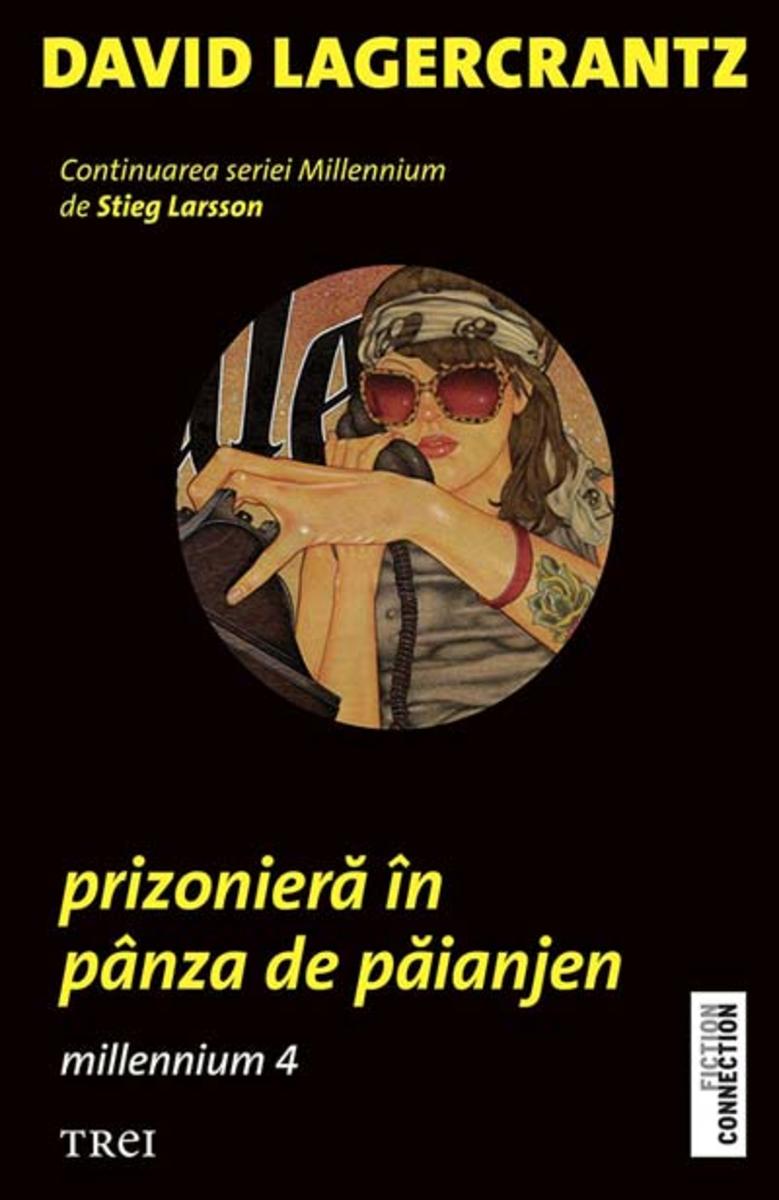
Prizonier? ?n p?nza de p?ianjen. Millennium 4
¥106.19
Maestrul Benedict Blackthorn, membru de vaz? al Breslei Spi?erilor, este pe cale s? descopere cea mai de seam? re?et? a tuturor timpurilor: cea prin care se ob?ine Focul Arhanghelului – puterea suprem? pe P?m?nt. Pe urmele lui se afl? un coleg de breasl?, care vrea s? fure re?eta ?i s? foloseasc? Focul pentru ?nl?turarea regelui Carol de pe tronul Angliei. C?nd Maestrul Benedict simte c? este ?n pericol de moarte, ?i ?ncredin?eaz? ucenicului s?u Christopher Rowe misiunea de a salva re?eta ?i, totodat?, via?a ?i tronul lui Carol, precum ?i soarta Angliei. ?Un debut spectaculos. “- Kirkus Reviews ?Magie, aventur? ?i multe chestii care explodeaz? – ador cartea asta! “- Eoin Colfer ?Kevin Sands a creat un erou ambi?ios, inimos ?i plin de umor ?n Christopher Rowe, ucenicul spi?erului. Aceast? aventur? palpitant? v? va captiva. “- Ingrid Law ??ns? re?etele noi nu pic? din cer. Trebuie s? le descoperi. Asta cere zile, luni, chiar ani ?ntregi de munc? grea. ?i cost? o avere: ingredientele, instrumentele, c?rbunele pentru ?ntre?inut focul, ghea?a pentru r?cit. Mai presus de toate, era primejdios. Focuri p?rjolitoare. Metale topite. Elixiruri care miroseau dulceag, dar care ??i devorau m?runtaiele. Tincturi care p?reau inofensive, ca apa, dar emanau vapori invizibili. La fiecare experiment nou, ??i primejduiai via?a. A?adar, o re?et? care func?iona era mai pre?ioas? dec?t aurul." ?Debutantul Sands a scris o poveste incitant? despre alchimie ?i secrete ad?nc ?ngropate. Kevin Sands alterneaz? abil p?r?ile mai ?ntunecate ale romanului cu momente de umor ?i destindere, ad?ug?nd detalii picante ?n descrierea personajelor ?i a contextului istoric. To?i cei interesa?i de chimie, istorie, puzzle-uri complicate ar trebui s? citeasc? romanul. “- Publishers Weekly
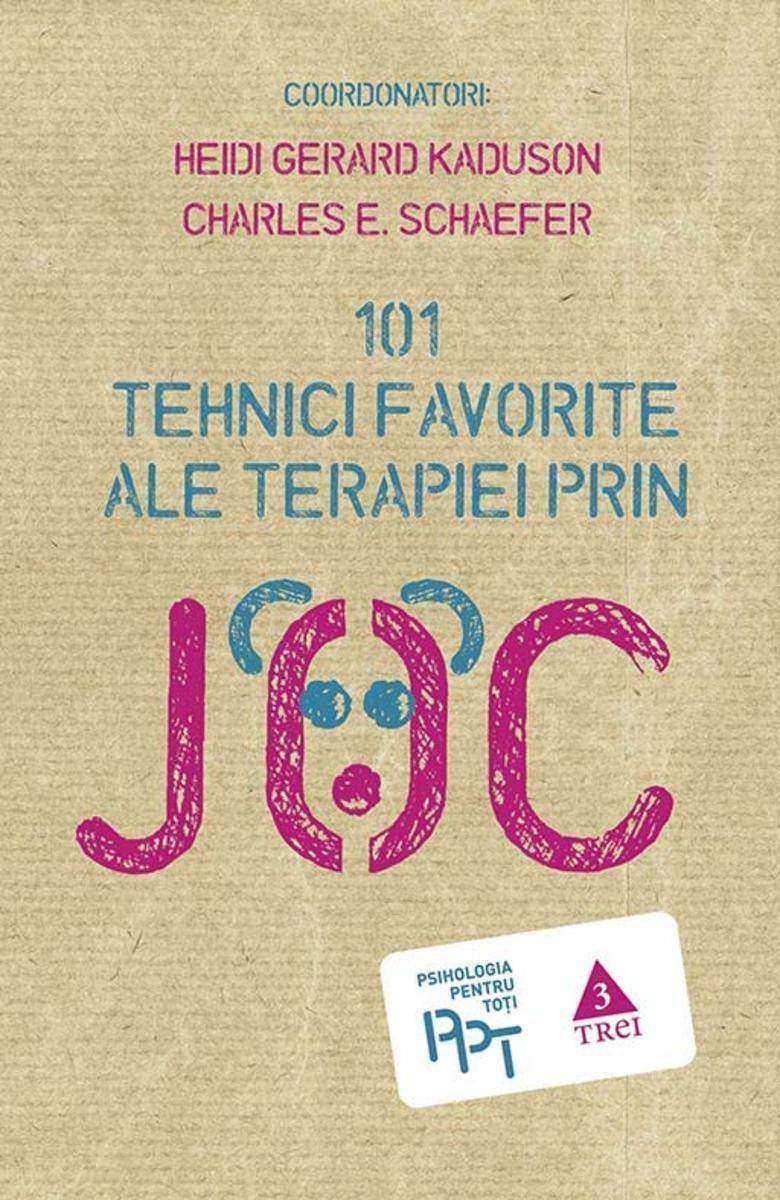
101 tehnici favorite ale terapiei prin joc
¥106.19
Új esély mindenkinek jár. Vagy mégsem? Star Meadow egy kellemes, átlagos, nyugodt amerikai város. Legalábbis annak akar látszani. Victoria, a vámpír lány, egy távoli országból, reményvesztetten érkezik ide, mindent maga mögött hagyva. Akarata ellenére kénytelen elfogadni új életét, hiszen máshol nincs biztonságban. Itt találkozik a vámpírok vezet?jével, Logannel. A vad, állatias, és veszélyesen vonzó férfi az els? pillanattól kezdve h?vösen viselkedik vele. Az id? múlásával azonban mégis egyre közelebb és közelebb kerülnek egymáshoz. De titkokat rejt? múltjuk el?l ?k sem menekülhetnek - még akkor sem, ha új barátokra, új otthonra lelnek. Vajon Victoria végre megtalálja a nyugalmat, vagy a múlt sötét árnyai rátalálnak és magukkal rántják? ARIA BRIGHTON sikergyanús els? könyve egyszerre izgalmas, kalandos és romantikus. A regény olyan világba repít, ahol bármi megtörténhet: szerelem, új barátságok, csalódás és árulás.
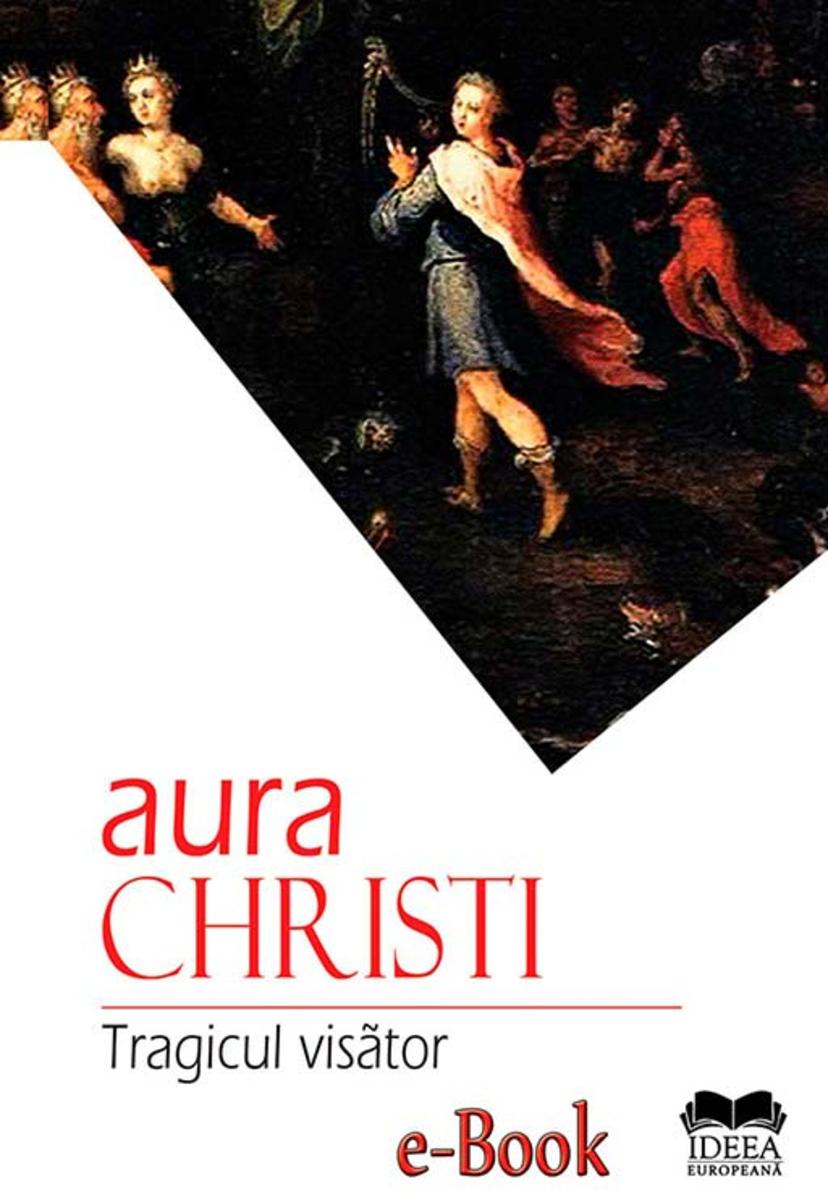
Tragicul vis?tor
¥106.19
Castelul Escal?Vigor ?i insula din jurul lui, Smaragdis, sunt scena pe care se construie?te utopia tân?rului nobil Henry de Kehlmark. Dorin?a acestuia de a tr?i conform naturii sale se love?te de prejudec??ile unei întregi comunit??i care, de?i nu se d? înapoi de la propriile?i excese, nu poate accepta dragostea dintre doi b?rba?i.
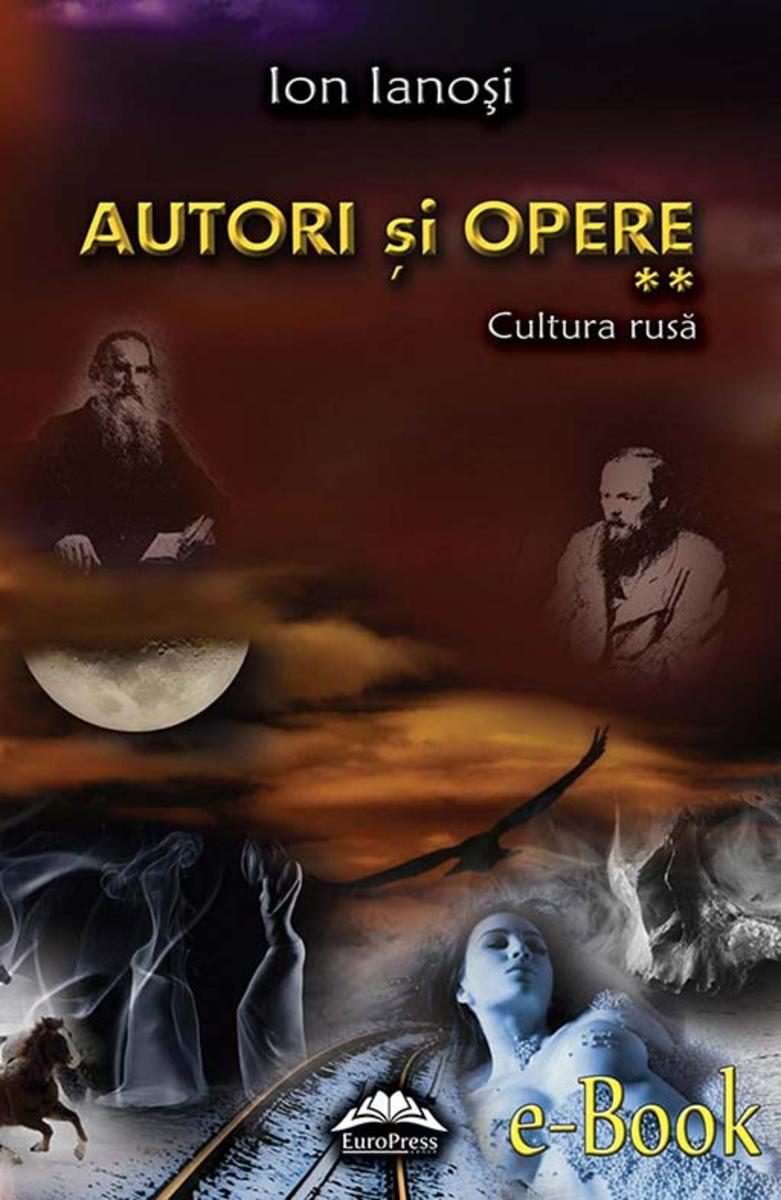
Autori ?i opere. Vol. 2 - Cultura rus?
¥106.19
Al unsprezecelea volum al Inimii de Broscu?? ne dezv?luie o nou? pagin? din copil?ria Puiului orfan de Veveri??, cu care v?a?i familiarizat deja ?n volumele anterioare. Cu sacrificii de neimaginat, mai ales pentru un copil, reu?e?te s???i recapete libertatea c?nd orice speran?? p?rea pierdut? ?i porne?te ?ntr?o lung? c?l?torie al?turi de cele dou? ??n??roaice, surioarele sale. Norocul pare s? le sur?d? din nou ?i, ?ncet??ncet, cei trei vor experimenta tr?iri frumoase – alte fa?ete ale vie?ii –, se vor bucura de noi prietenii ?i de lini?tea pe care ?i?o doriser? at?t de mult. Totul se va schimba ?ns? c?nd vor afla c? drumul spre o pr?pastie e ?ntotdeauna pavat cu inten?ii bune ?i vor fi nevoi?i s? ?nve?e o lec?ie foarte important? despre libertate ?i alegere…
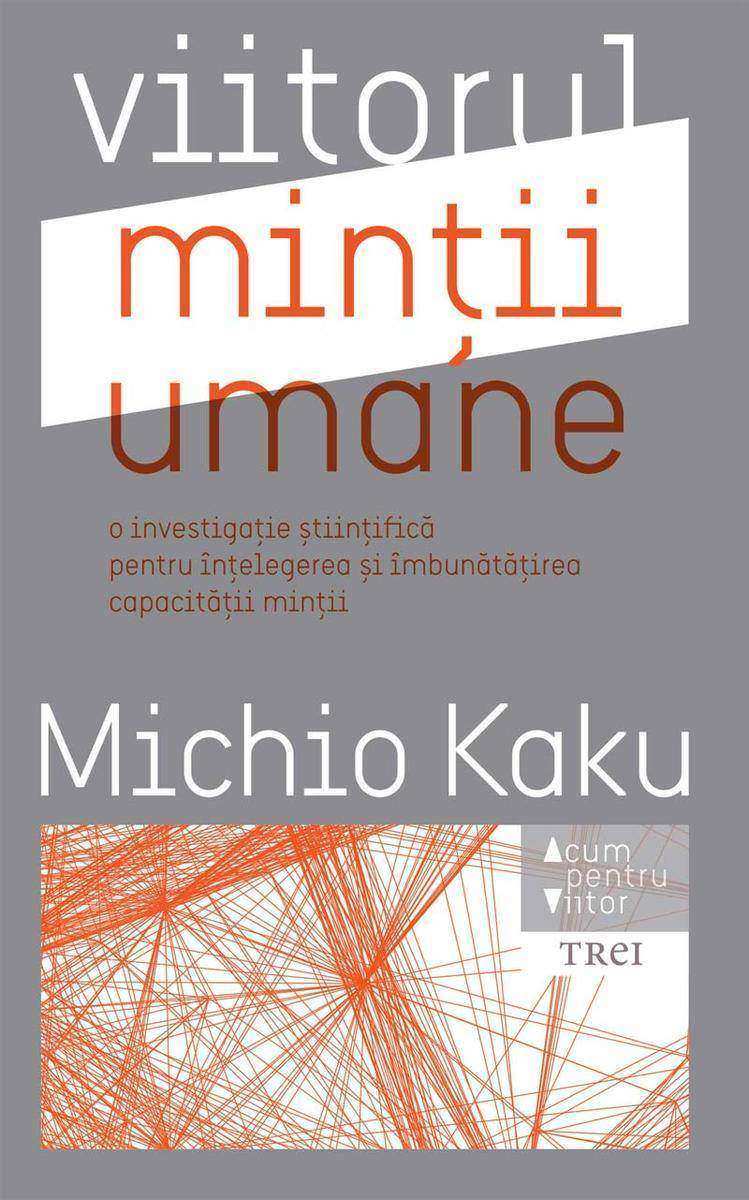
Viitorul min?ii umane
¥106.19
Carmen tehetséges, talpraesett tizenkilenc éves lány, aki úgy gondolja, hogy már képes megállni a saját lábán. Elk?lt?zik a szüleit?l egy kisvárosba, ahol nemcsak jó barátokat szerez, de megismerkedik A fiú-val is. Robról azonban hamar kiderül, hogy nem éppen az a mesebeli herceg, akire minden lány vágyik. Carmen kénytelen megtapasztalni a szerelem árnyoldalait, rettegést és bántalmazást is. Mik?zben az igazi szeretetr?l még fogalma sincs, még ha ott is van egy karnyújtásnyira t?le.Képes lesz-e a fiatal lány kilépni ebb?l a testet-lelket romboló kapcsolatból? Megtalálja-e végre az igaz szerelmet, és sikerül túllépnie a sérelmein? Wendler Nikoletta regénye túlf?t?tt vágyakozásról, veszélyes szerelemr?l és egy olyan megvalósult álomról szól, ami bárkié lehetne.
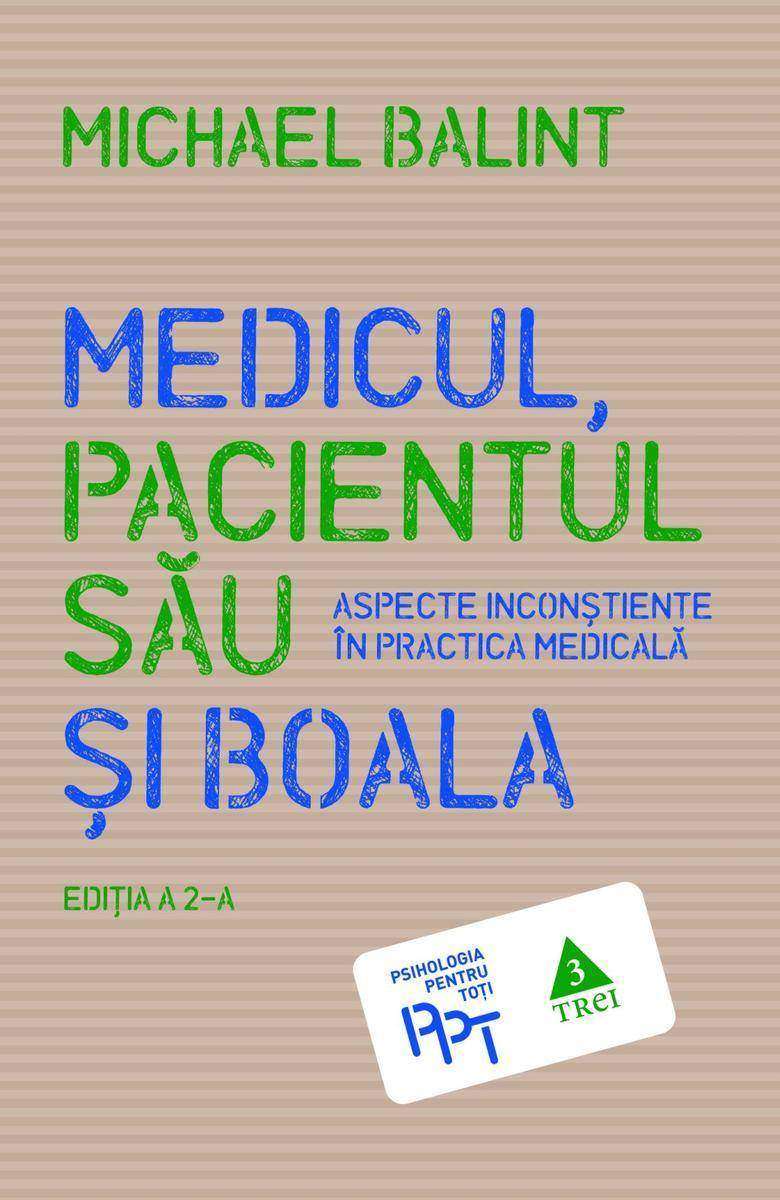
Medicul, pacientul s?u ?i boala. Aspecte incon?tiente ?n practica medical?
¥106.19
E doar o voce ivit? de nic?ieri: ?Americanul vrea o sut? de milioane de dolari”.?Pentru ce anume? ?i de la cine? Este anul 1996 ?i sovieticii au plecat de mult. Dar acum a ap?rut un nou inamic. ?ntr-un apartament din Hamburg, o celul? jihadist? pl?nuie?te o lovitur? de propor?ii.?Jack Reacher tocmai a finalizat cu succes o misiune secret?. ?efii lui din armat? ?l felicit? ?i-l trimit din nou la ?coal?. Dar acolo sunt doar trei elevi: Reacher, un agent FBI ?i un analist CIA.Sarcina lor? S?-l g?seasc? pe americanul misterios. ?i s? afle ce vinde. ?i cui. Situa?ia este foarte grav? – e posibil ca lumea s? fie victima unui act teribil de terorism.??n ?coala de noapte, Reacher se ?ntoarce ?n armat?, dar acum f?r? uniform?. Av?nd-o al?turi pe Frances Neagley, ajutorul lui de n?dejde, soarta lumii este pe umerii s?i, ?ntr-o aventur? trepidant?, teribil de bine scris?, care-?i va da fiori pe ?ira spin?rii.“Cel mai bun thriller.” - Stephen King“Premisa unui complot anterior atentatului de la 11 septembrie 2001 este ?n acela?i timp conving?toare ?i deconcertant?, iar Lee Child, cu aten?ia lui caracteristic? pentru detalii, reu?e?te s? redea ?ntreaga ac?iune ?ntr-un mod surprinz?tor ?i credibil.” - Publishers Weekly“Acest roman, a c?rui ac?iune se petrece cu ani ?n urm?, cu o investiga?ie de ?coal? veche, tactici urbane inteligente ?i atitudinea devenit? clasic? a lui Reacher, este o carte antrenant?, care se cite?te cu sufletul la gur?.” - Library Journal?
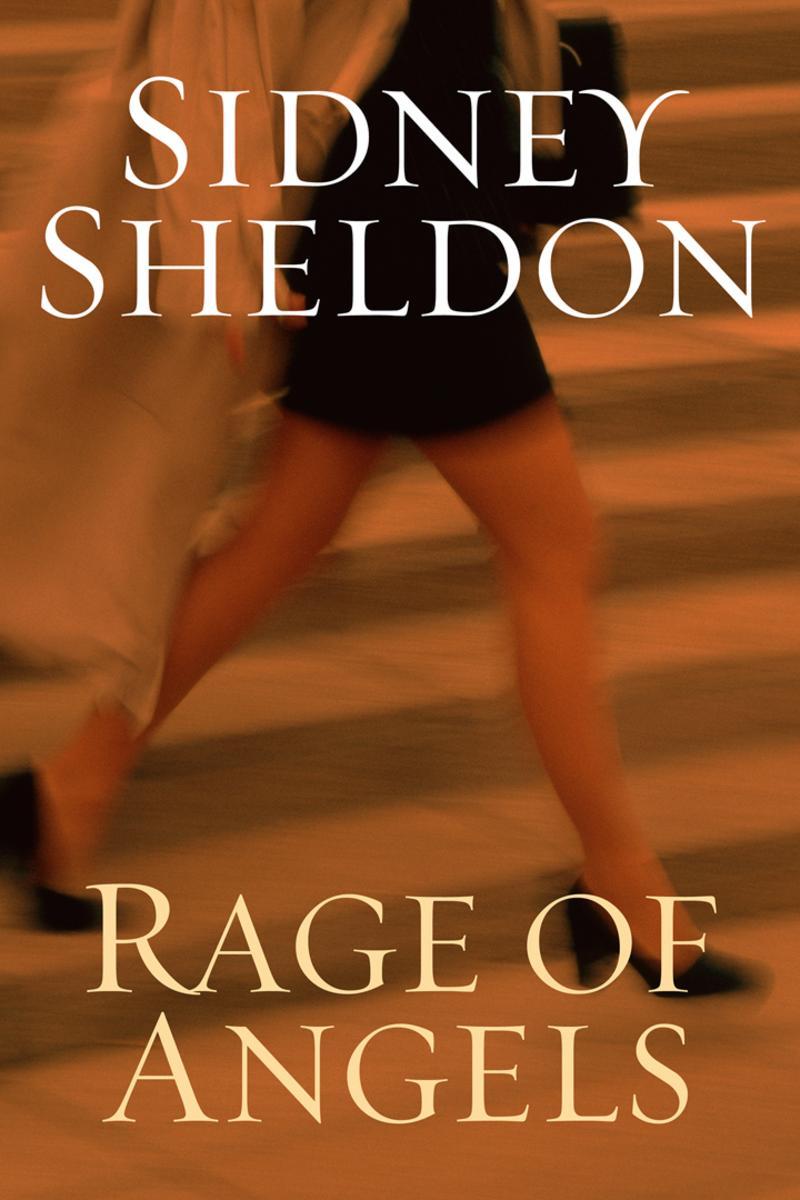
Rage of Angels
¥106.08
A worldwide bestseller first published in 1980, this novel tells the story of Jennifer Parker, a successful lawyer who is loved by two men, one a politician, the other, a mafia don.
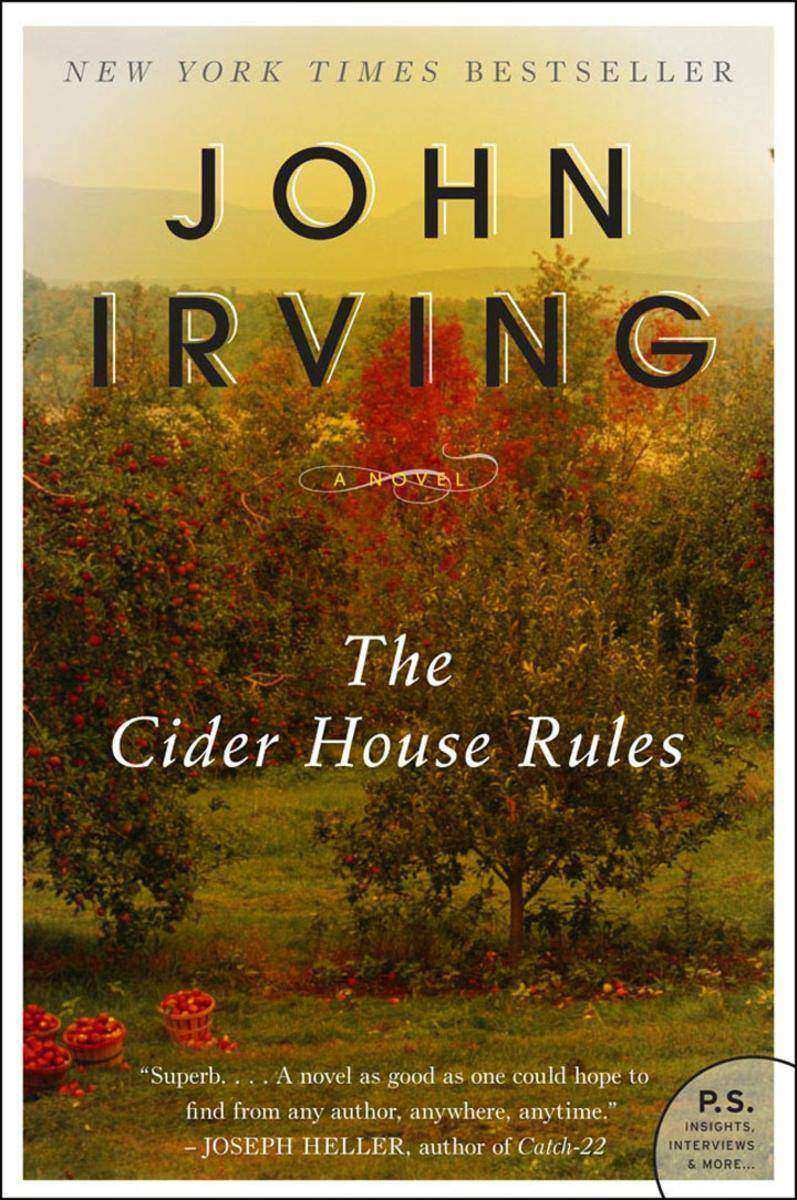
The Cider House Rules
¥106.08
First published in 1985 by William Morrow, The Cider House Rules is John Irving's sixth novel. Set in rural Maine in the first half of the twentieth century, it tells the story of Dr. Wilbur Larch—saint and obstetrician, founder and director of the orphanage in the town of St. Cloud's, ether addict and abortionist. It is also the story of Dr. Larch's favorite orphan, Homer Wells, who is never adopted.
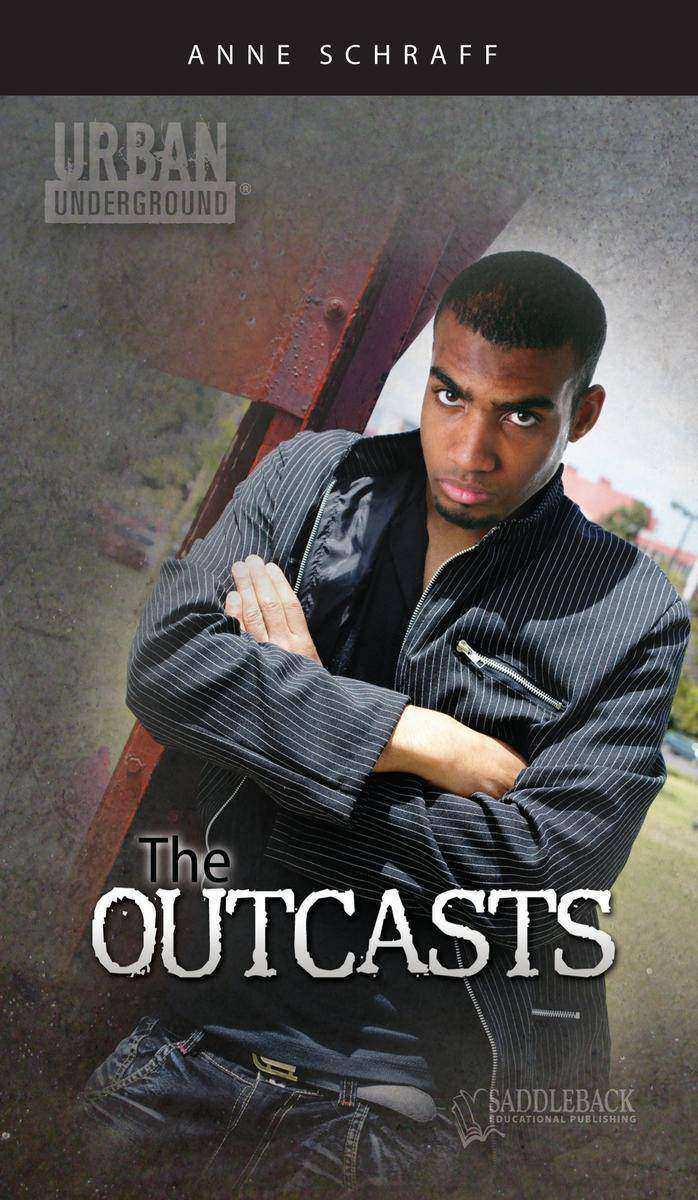
Outcasts
¥105.87
Written for young adults, the Urban Underground series confronts issues that are of great importance to teens, such as friendship, loyalty, drugs, gangs, abuse, urban blight, bullies, and self-esteem to name a few. More than entertainment, these books can be a powerful learning and coping tool when a struggling reader connects with credible characters and a compelling storyline. The highly readable style and mature topics will appeal to young adult readers of both sexes and encourage them to finish each eBook. Harriet Tubman HS Series - With the state of mind Trevor was in, Vanessa could talk him into anything. Would Vanessa get Trevor involved in crime again? It could happen, only this time Trevor might not be so lucky. But back then, Trevor had had enough brains to dump her. Now he was in deeper. The web Vanessa had woven around him was stickier and tighter.

Unbroken
¥105.87
Written for young adults, the Urban Underground series confronts issues that are of great importance to teens, such as friendship, loyalty, drugs, gangs, abuse, urban blight, bullies, and self-esteem to name a few. More than entertainment, these books can be a powerful learning and coping tool when a struggling reader connects with credible characters and a compelling storyline. The highly readable style and mature topics will appeal to young adult readers of both sexes and encourage them to finish each eBook. Cesar Chavez HS Series - David Morales spent two years in prison flying under the radar. Now he's determined to be a good citizen. And his luck turns when Carmen Ibarra's father offers him a job. David falls hard for a smart and pretty coworker. But can he ever tell her about his ugly past?
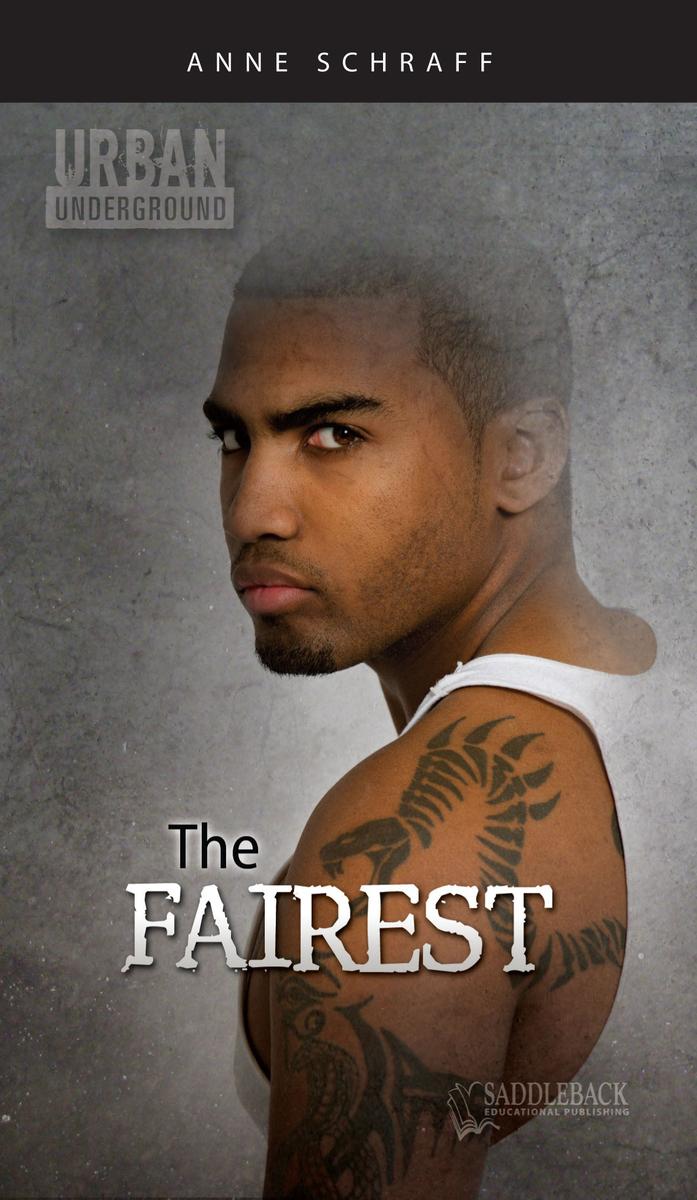
The Fairest
¥105.87
Written for young adults, the Urban Underground series confronts issues that are of great importance to teens, such as friendship, loyalty, drugs, gangs, abuse, urban blight, bullies, and self-esteem to name a few. More than entertainment, these books can be a powerful learning and coping tool when a struggling reader connects with credible characters and a compelling storyline. The highly readable style and mature topics will appeal to young adult readers of both sexes and encourage them to finish each eBook. Harriet Tubman HS Series - The Princess of the Fair contest is supposed to infuse and inspire students with school spirit. The winner should embody the qualities of Harriet Tubman, the schools namesake. But everyone knows it will turn into a nasty popularity contest where mean girls like Jasmine Benson will stop at nothing to win.

See No Evil
¥105.87
Written for young adults, the Urban Underground series confronts issues that are of great importance to teens, such as friendship, loyalty, drugs, gangs, abuse, urban blight, bullies, and self-esteem to name a few. More than entertainment, these books can be a powerful learning and coping tool when a struggling reader connects with credible characters and a compelling storyline. The highly readable style and mature topics will appeal to young adult readers of both sexes and encourage them to finish each eBook. Harriet Tubman HS Series - On the brink of her freshman year at Tubman High, something clicked in Chelsea's mind. Shadrach rescued animals. And in a way, he saved kids by teaching them respect. Now she and her friends were rescuers by volunteering at the shelter. Jaris was a rescuer too. He was trying to save Sereeta's mom. And, maybe Maurice would have to rescue Athena from getting into trouble.




 购物车
购物车 个人中心
个人中心



